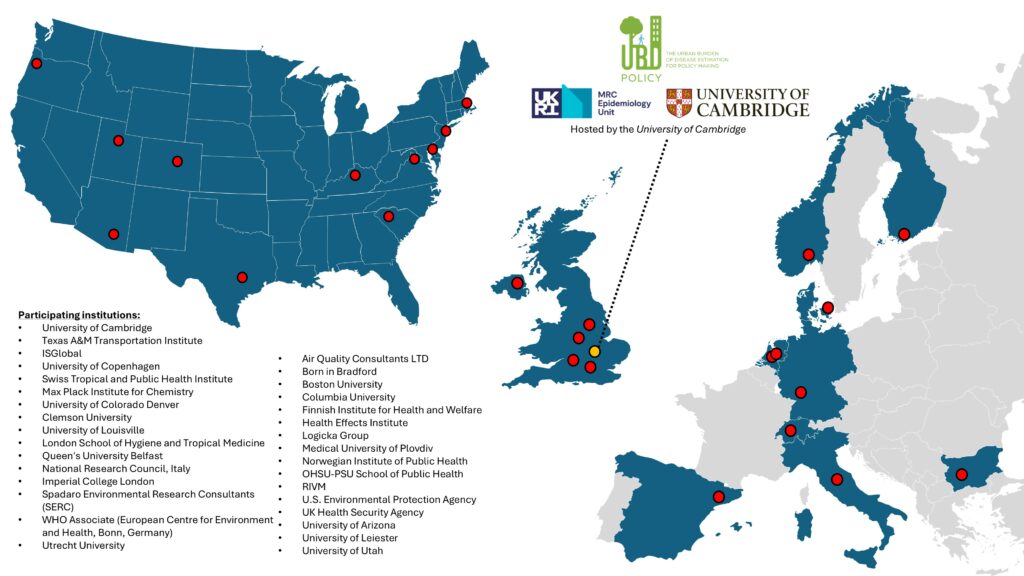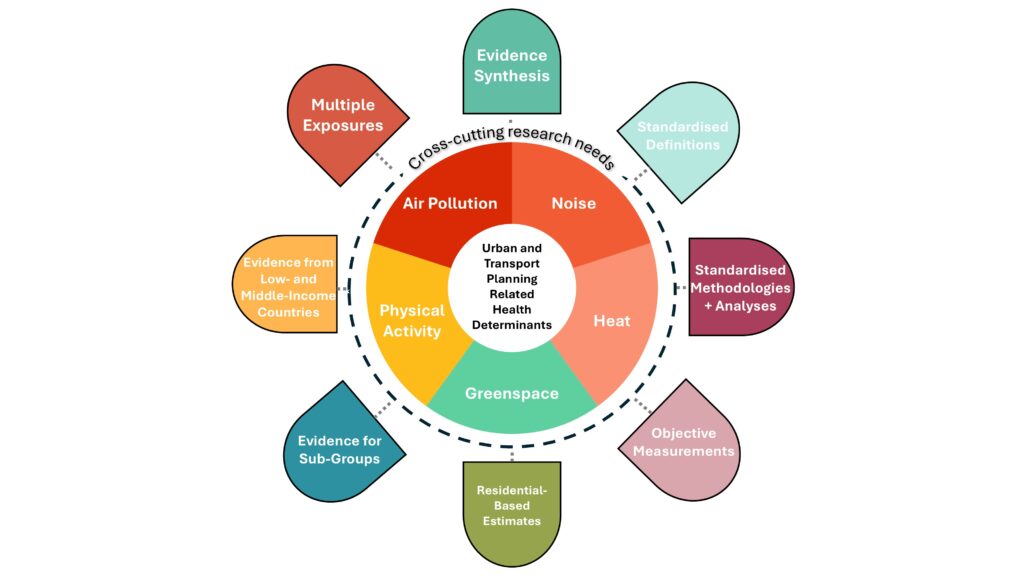The Urban Burden of Disease Estimation for Policy making (UBDPolicy) project is an EU-funded initiative aimed at enhancing the estimation of health impacts and socio-economic costs or benefits associated with air quality, noise, urban green space availability, heat and temperature, physical activity, and inequity across nearly 1,000 European cities.
The project monitors three-year trends, and assesses the impacts of urban and transport planning as well as environmental policies. It also seeks to advance methodological approaches and promote their adoption as best practices for urban areas, thereby strengthening evidence-based policymaking at city, national, and regional levels.
UBD policy workshop on 23 and 27 September 2024
The MRC Epidemiology Unit at the University of Cambridge is a key project partner, leading work packages, including one focused on selecting and utilising exposure and dose-response functions for policy-oriented health impact assessments. On September 23 and 27, 2024, we organised a two-day workshop to discuss recent advancements, ongoing challenges, and future directions regarding exposure-response functions and their use in health impact assessments.
We invited expert speakers from diverse disciplines to present relevant topics in brief sessions designed to spark discussion and gather feedback, ultimately summarising challenges and forming consensus on future directions in subsequent Q&A sessions. Topics covered included multiple health determinants related to urban and transport environments, as well as methodological challenges in health impact assessments, such as effect modification, multi-correlated exposures, and subgroup exposure-response functions and susceptible populations. The workshop brought together 73 participants, including experts and stakeholders from environmental epidemiology, exposure science, urban and transport planning, statistics, health geography, and health impact assessments, representing 32 institutions across 11 countries in Europe and North America.
“Holistically improving urban health necessitates cross-disciplinary approaches, to effectively capture the wide range of exposures and behaviours that can influence our health and wellbeing. We brought a diverse group of experts and stakeholders together, to share lessons learned, discuss common challenges, and chart future research directions”
Haneen Khreis, Senior Research Associate, MRC Epidemiology Unit, University of Cambridge
Building an international community to avance the urban health agenda
This workshop provided a dynamic forum for an international, cross-disciplinary group committed to advancing the urban health agenda. It underscored recent evidence, methodologies, and challenges related to key environmental health determinants, while also highlighting the potential for interdisciplinary collaboration as research reveals complex interrelationships and cumulative interactions among various determinants.
We will continue to engage with our collaborators in meaningful discussions through UBDPolicy and other forums, aiming to build a long-term community of practice and thought leaders.”
– Harry Williams, Research Assistant, MRC Epidemiology Unit
Health impact assessment remains a vital tool for promoting targeted, evidence-based policies aimed at creating healthier urban environments. The insights gained from this workshop will inform ongoing health impact assessments. We plan to compile our discussions into a commentary paper to showcase recent evidence, identify knowledge gaps, and outline both specific and overarching research challenges, setting an agenda for future research and sharing it with the broader research community.


 MRC Epidemiology Unit
MRC Epidemiology Unit
